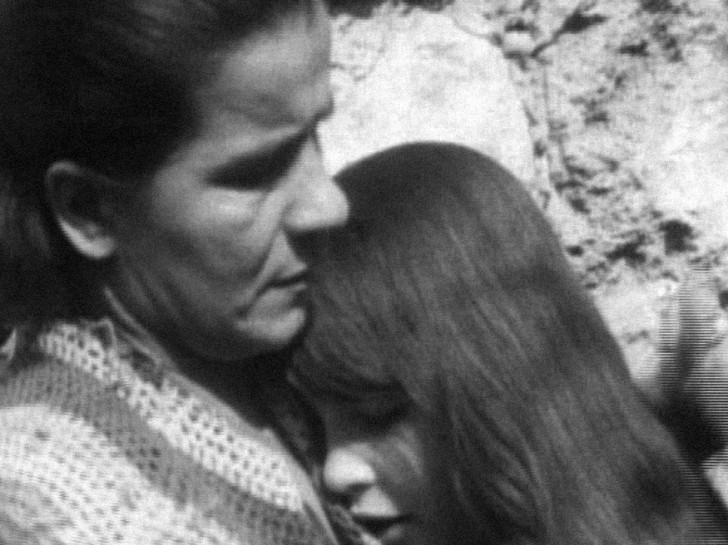
Cortile Cascino
Faces of Israel
One thing becomes evident to any contemporary viewer as soon as Cortile Cascino begins, and must have, too, to those at NBC who decided to destroy the negative; this is not the kind of documentary one was used to seeing at the time, and as a few minutes pass, another realization, now, as then, how did they expect this would get on the conservative television of the day? (CBS had broadcast Harvest of Shame in 1960, but Cortile Cascino is something else entirely.) First, a title card states that the film has “Spoken commentary based on actual recorded conversations,” a curious preface, and for the next three quarters of an hour, we meet the residents of Cortile Cascino, per the voiceover, an “ancient slum.” Roemer abhorred the narration, and he would remove large segments of it for the version that now exists, but it does deflect somewhat from the extremity of the images by giving people names and identities. Animal slaughter, child labor, crippling poverty and prostitution are all presented as facts of life in Cortile Cascino, as they are facts of life across the earth, should someone look, which American television might not have thought its postwar audiences were yet ready to, even if it was the reality in their own cities. NBC cancelled the broadcast days before the scheduled airdate, yet remarkably, the person tasked with junking the negative admired the film and made a dupe, which is the source that allowed the film to be saved. – excerpted from introduction by Jake Perlin
-
Faces of Israel
Directed by Michael Roemer.
US, 1967, digital video, black & white, 27 min.
Faces of Israel was the product of a commission from NET to make a film about Martin Buber, an assignment accepted because it could also serve as a research trip for an option Roemer and Young had on Elie Wiesel’s Dawn, ultimately abandoned as unfilmable. Shot in 1966, for which Roemer spent six weeks of research in Israel before cameras rolled, the resulting film Dialogue was eventually aired on PBS. It was a decade later, while teaching at Yale, that Roemer revisited the footage and recut it as Faces of Israel, the film never shown, or even intended to be shown, save for a few screenings, and often mistaken as airing in 1966. The film opens with a single still image of an emaciated dead body, presumedly a Nazi victim, in a camp or a ghetto, held for just a few seconds: no sound, no text, no narration. Nothing is needed. And then the contemporary images begin. It is as simple and striking an opening as the documentary form has produced. – excerpted from introduction by Jake Perlin

















